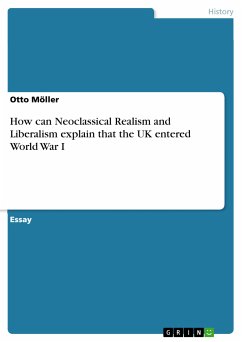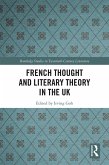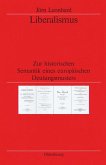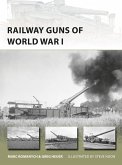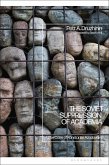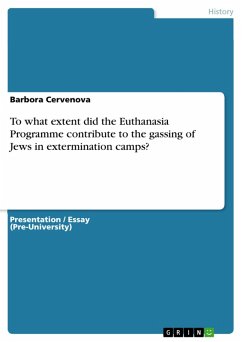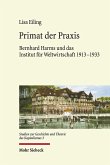Essay from the year 2016 in the subject History of Germany - World War I, Weimar Republic, grade: 2,0, University of Kent (Brussels School of International Relations), language: English, abstract: The following essay finds its niche in intending to shed light on the question as to why the United Kingdom entered the First World War. Firstly, in the background analysis, the political causes that lead to the formal declaration of war of the UK against the middle powers (Germany, Austria-Hungary and Italy) will be analysed. Secondly, the first deployment of British troops will be looked at as a direct result of the declaration. The subject will be approached from two sides, firstly from the Neoclassical perspective. Asking in how far political power struggles considerations resulted in the decision to join the war. Especially, the Triple Entente alliance (UK, France, and Russia), and the "Treaty of London of 1839" which played a crucial role in the British decision to join the war will be analysed. The UK found itself in a duty bound situation to "defense the Belgian neutrality." The two agreements will be used as part of the explanation as to why and how the UK joined the war, they will be examined through the sense of both school of thoughts. Secondly, the Liberal school of thought will lend its self to the explanation. The ideas of Kant will be tested as to whether they can explain the British participation in the war. The concept of international cooperation, the duty to uphold contracts and the internal logic that democracy and free trade spreads are part of the train of thought of this paper.
Dieser Download kann aus rechtlichen Gründen nur mit Rechnungsadresse in A, B, BG, CY, CZ, D, DK, EW, E, FIN, F, GR, HR, H, IRL, I, LT, L, LR, M, NL, PL, P, R, S, SLO, SK ausgeliefert werden.

